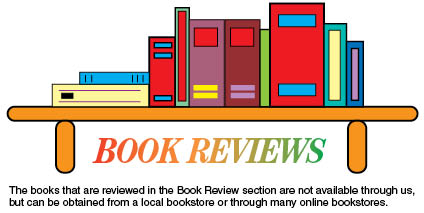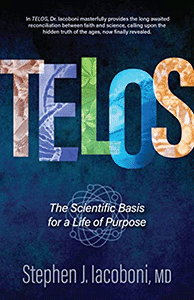Return to 2nd Quarter 2023 articles.

Telos
by Stephen J. Iacoboni, Broadstreet Publishing, © 2022
$16.99 paperback, 256 pages, ISBN-13: 978-1-4245-6396-8

One of the most significant weaknesses of atheistic naturalism is that it gives no purpose for existence. Why do we exist, or why is there something instead of nothing? We have approached the question of purpose by asking people to consider where that belief takes our lives. If we have no purpose and there is no reason for our existence, why should we live? The accelerated use of drugs and suicide is certainly related to those who believe they have no reason to exist.
Dr. Stephen J. Iacoboni, MD, is a well-known oncologist who has been the medical director of three cancer centers in the Pacific Northwest and wrote this outstanding book subtitled “The Scientific Basis for a Life of Purpose.” Iacoboni discusses the modern promoters of naturalism and atheism. He also goes back to Aristotle, who clearly stated that an innate force of nature organizes all things for a purpose he called “telos.” Iacoboni shows that even the great minds of science, like Newton and Darwin, failed to understand the purpose that is clear in the things they discovered. Iacoboni points out that this “deceived and misled the scientific world, which blindly followed, making a need for a new paradigm” (page 106). This book is serious, but Iacoboni writes with humor, sensitivity, and even poetry.
This book is heavily documented and contains many quotes proving Iacoboni's point. He shows that the refusal to see purpose in nature inhibited science and severely affected philosophy, resulting in existentialism. Iacoboni takes to task modern philosophers who have based their theories on the erroneous assumption that there is no purpose in the natural world. He heavily quotes and refutes materialistic atheists like Russell, Wilson, and Monod.
This is not a “religious” book. The idea of purpose agrees with the Bible, but Iacoboni does not use the Bible as a source. Instead, he bases his argument on science and philosophy and challenges the reader to think. We recommend this book highly. It makes the same point we have tried to make, but Iacoboni does it on a more academic level, which makes the book very useful for college-educated readers and for those who are active in science and medicine. Much of Iacoboni's evidence is from accounts of his work with patients suffering from cancer. Students interested in biology and medicine will find this material to have an eye-opening message.
